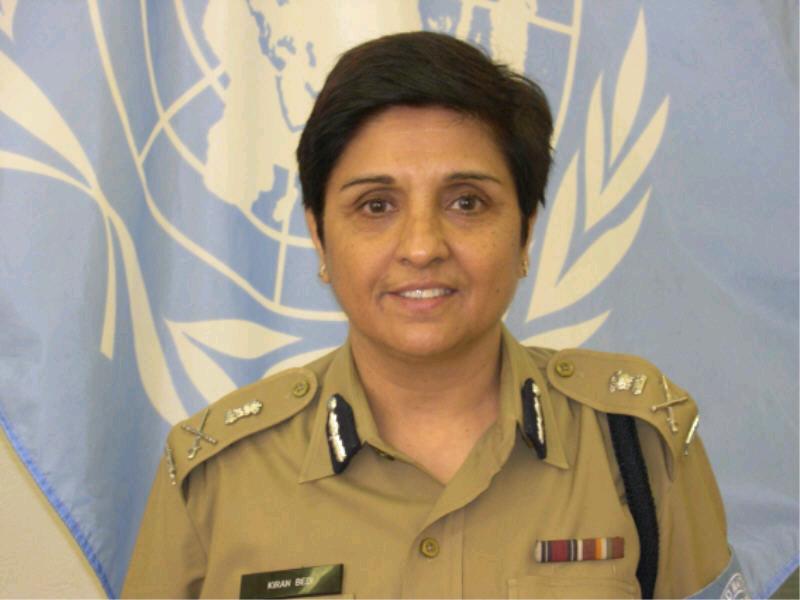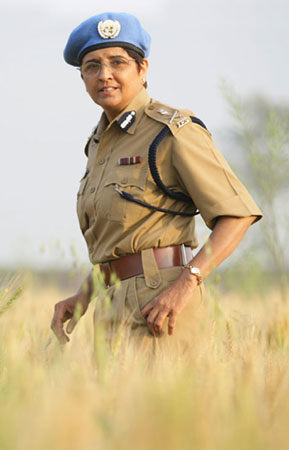
Kiran Bedi was born on June 9, 1949. Her father Prakash Lal Peshawaria, a landlord in Punjab was determined to educate his four daughters at a time when women were largely limited to doing household tasks.
While studying at the Sacred Heart Convent, Kiran joined the National Cadet Corps (NCC) and took up tennis, a game which her father used to play.
After school she went on to study Political Science at the Government College for Women, Amritsar. She loved the subject as she felt it taught her about her role as a citizen of the country.

She met Brij Bedi at the Amritsar tennis courts who shared same interests, beliefs and goals. He was nine years elder to her. They married in 1972 in the most unique marriage ceremony of the yesteryears. Neither of them believed in religious ceremonies, or an expensive marriage ritual. Therefore they went to the Shiva temple and prayed, going around the temple seven times. Then they organized a joint reception paid from their combined earnings. They have 4 daughters.
Kiran Bedi was the first woman police officer of the Indian Police Service. Spectators at the 1973 Republic Day Parade were amazed to see a lady at the head of the Police Contingent. The then Prime Minister, Mrs. lndira Gandhi was so impressed that she invited Kiran for breakfast with her the very next day.
Kiran Bedi influenced several decisions of the Indian Police Service, particularly in the areas of narcotics control, traffic management, and VIP security. During her stint as the Inspector General of Prisons, in Tihar Jail (Delhi) (1993–1995), she instituted a number of reforms in the management of the prison, she introduced many classes and programs for the inmates including those on basic education, meditation, yoga besides functions like mushairas, kavi sammelans, dramas and games, which involved the jail inmates. For her effort to humanize the Tihar jail she was honored with the 1994 Ramon Magsaysay Award.
Kiran Bedi laid the foundation for the establishment of two voluntary organizations, namely, Navajyoti (1988) & India Vision Foundation (1994). These organizations were primarily set up with the aim of improving the living conditions of the drug addicts and the underprivileged people. The effort of Kiran Bedi has paid and brought her worldwide recognition. Her works have always earned appreciation. For drug abuse prevention, her organization was presented with the Serge Soitiroff Memorial Award by the United Nations
Kiran Bedi also launched a new website, www.saferindia.com on January 3, 2007. The motto of this website is to help people whose complaints are not accepted by the local police.
She has written her autobiography, 'I Dare. It's Always Possible', which was released in 1998
"Yes Madam, Sir", an award-winning, critically acclaimed film of Kiran Bedi's life, directed by Australian director, Megan Doneman, premiered as an official selection at the Toronto International Film Festival




No comments:
Post a Comment